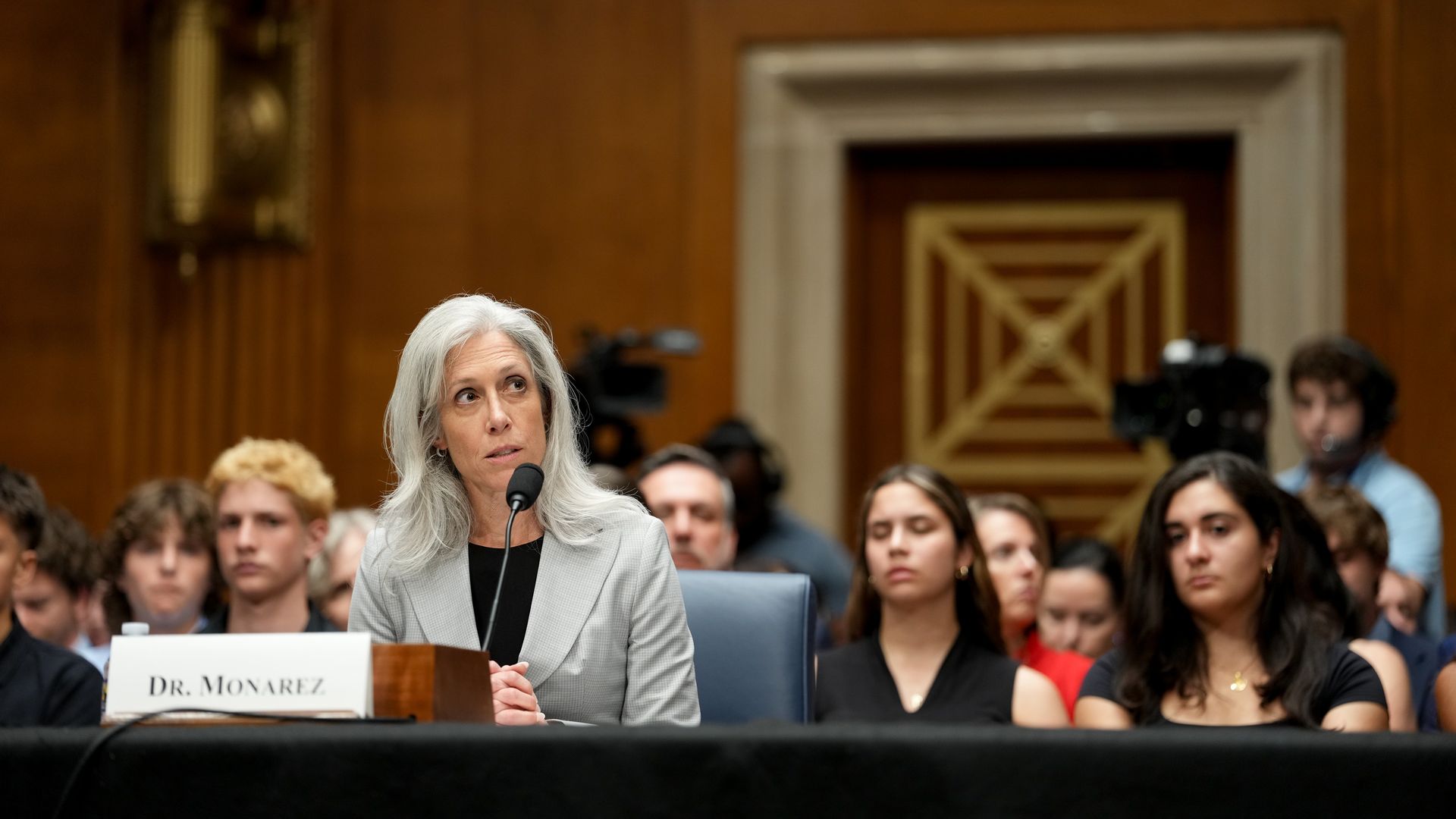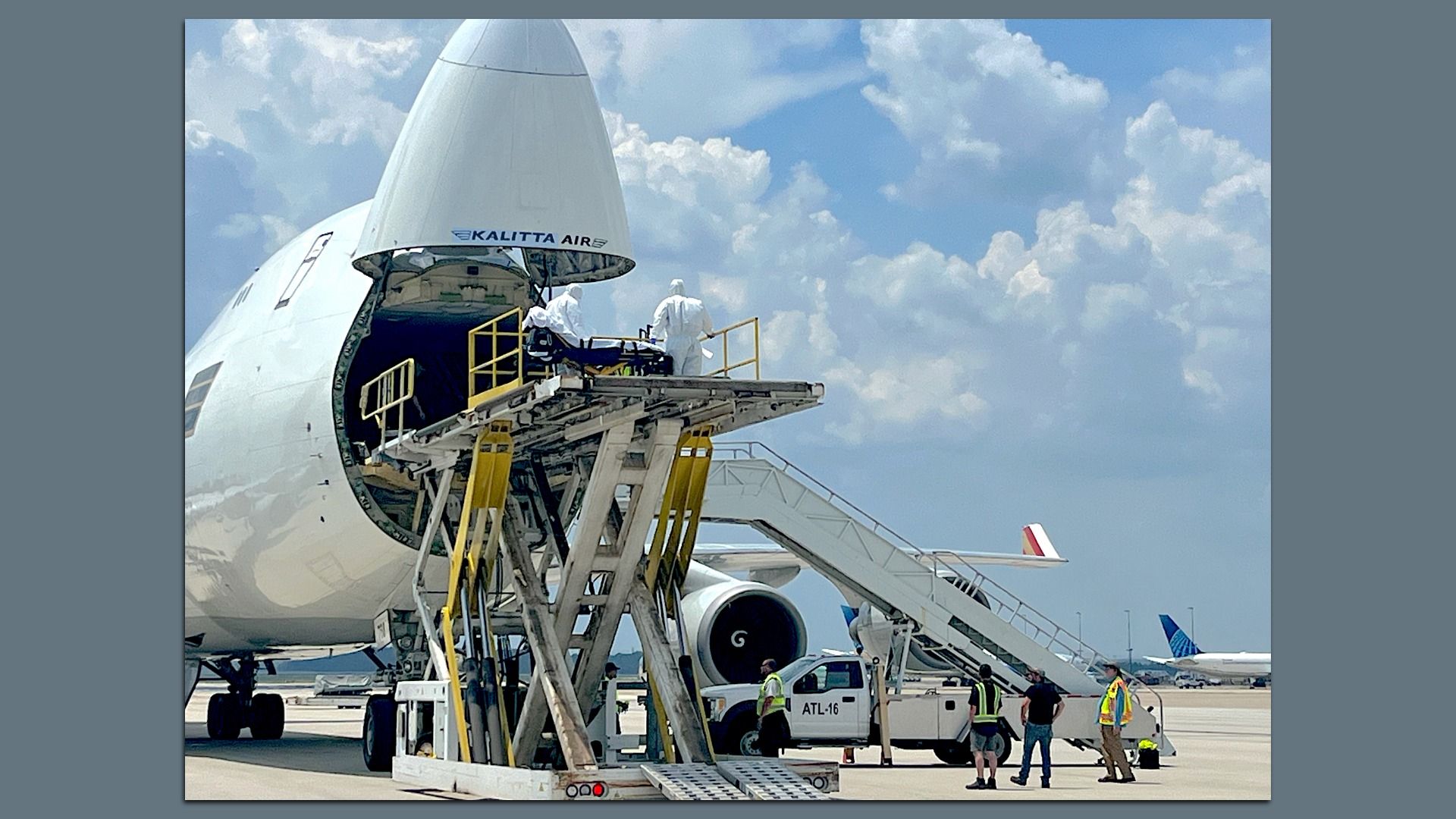|
||
| PRESENTED BY PHARMACEUTICAL REFORM ALLIANCE | ||
| Axios Vitals | ||
| By Tina Reed and Maya Goldman · Jun 26, 2025 | ||
|
Hello, Thursday! Today's newsletter is 948 words or a 3.5-minute read. |
||
| 1 big thing: RFK Jr. vaccine panel's rocky debut | ||
| By Maya Goldman | ||

|
||
|
Illustration: Gabriella Turrisi/Axios |
||
|
The first meeting of HHS Secretary Robert F. Kennedy Jr.'s handpicked vaccine advisory board yesterday featured plenty of anti-vaccine talking points — and its proceedings didn't stick to the script. State of play: It was revealed that one of Kennedy's eight appointees withdrew during the required financial review, leaving the board with only seven members.
The big picture: The events underscored how the Advisory Committee on Immunization Practices is on a less predictable course under Kennedy, who maintains he isn't against vaccines but is pro-safety.
Driving the news: The committee quickly served notice that it will create new subgroups to look into the "cumulative effect" of current federal childhood and adolescent vaccine schedules, and to study vaccines that haven't been reviewed in more than seven years. Panel members voiced skepticism about mRNA vaccines during presentations on COVID-19 vaccine safety and efficacy and questioned the way the CDC they now advise designed past studies and analyzed data.
What's next: The committee will start voting today on recommendations for infant and maternal RSV vaccines, influenza vaccines and thimerosal-containing influenza vaccines.
|
||
|
|
||
| 2. CDC nominee walks fine line on vaccines | ||

|
||
|
CDC director nominee Susan Monarez testifies at the Senate health committee. Photo: Eric Lee/Bloomberg via Getty Images |
||
|
CDC director nominee Susan Monarez tried not to contradict Trump administration policies, while still touting her credentials as a scientist, during her confirmation hearing before the Senate health committee yesterday, Peter Sullivan wrote first on Pro. Why it matters: Monarez is a career government researcher who's regarded as a more mainstream nominee than President Trump's first pick, Dave Weldon, whose nomination was pulled amid concern from senators about his experience and vaccine views.
Driving the news: Monarez tried to show her commitment to more established science while also not contradicting some of Kennedy's more controversial views.
Health committee Chair Bill Cassidy (R-La.), who had called for the ACIP meeting to be delayed over concerns with the new members, called on Monarez to make the panel more balanced, if confirmed. If you need smart, quick intel on health care policy for your job, get AxiosProPolicy. |
||
|
|
||
| 3. Kids' fast food consumption declines: Study | ||
| By Maya Goldman | ||

|
||
|
Illustration: Sarah Grillo/Axios |
||
|
Kids and teens consumed fewer calories from fast foods over the decade that ended in mid-2023, according to newly published CDC data. Why it matters: It showed the country may have been heading toward healthier food options well before Kennedy took office and made cleaning up America's diet a priority. Where it stands: Kids ages 2 through 19 consumed an average of 11.4% of their daily calories from fast food on a given day between August 2021 and August 2023, according to data from the CDC's National Health and Nutrition Examination Survey.
Zoom out: About 30% of youth ages 2 through 19 ate fast food on any given day between August 2021 and 2023. That figure exceeded 36% between 2015 and 2018, the CDC found.
|
||
|
|
||
|
A MESSAGE FROM PHARMACEUTICAL REFORM ALLIANCE |
||
| Voters say we must hold Big Pharma accountable | ||
|
|
||
|
A national survey found that 86% of American voters are more likely to support congressional candidates who will:
|
||
| 4. Health teams practice deadly virus response | ||
| By Tina Reed | ||

|
||
|
Medical personnel wearing PPE are lifted to the entrance of a cargo jet with a portable biocontainment unit as part of a training exercise at Dulles Airport on Wednesday. Photo: Tina Reed/Axios |
||
|
Federal officials and health workers are practicing a deadly disease response this week at Washington Dulles International Airport, using a new portable biocontainment unit and a Boeing 747 to simulate the transfer of four patients with an unknown condition between Toronto and D.C.-area hospitals. The big picture: The Ebola outbreak underscored the importance of isolating and repatriating Americans with lethal viruses from hot zones, and transporting them between specially equipped hospitals, John Knox, principal deputy assistant secretary at HHS, told Axios.
|
||
|
|
||
| 5. Catch up quick | ||

